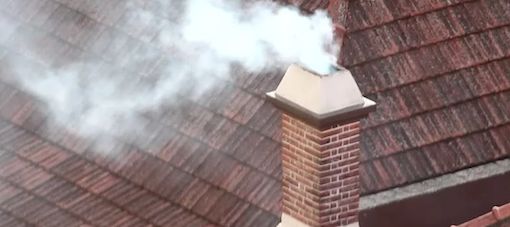Darkness Will Come To Light
Why didn’t the Germans smell the stench of the chimneys?
There were two types of prison camps in the Nazi regime used for the enemies of the Reich. The first was the work camp. There was no gassing of prisoners at those locations; victims were just worked to death. Dachau was the first. It was the model for all of the others very close to Munich. The Germans knew about the work camps because they were in plain view all over Germany. Propaganda had desensitized the populous. Germans were encouraged to openly hate the Jews and blame them for the countries ills. The Jews were considered filth and got what they deserved. It is important to note that mass extermination did not occur in Germany. It is interesting that Dachau did, however, have a gas chamber but never used it. One might wonder why that was so. I think I have an answer.
The answer is in the locations of the second type of camps. These were the death camps. In these camps were the gas chambers and the crematoria. Auschwitz-Birkenau was constructed in the south of Poland, and Treblinka, Sobibor, and Belzec were built in the far east of Poland. All of these were remote. One might ask why the Nazis built those camps so far away from the German population. The Nazis were evil, but they were not stupid.
The local Polish population was well aware of what was going on in their midst. Train cars of people were rumbling into these locations, unloading (like cattle) far more bodies than the camps could possibly hold. The air was filled with a very disagreeable odor of burning human flesh. Many locals worked at the camps. Why didn't they object? The simple fact is that Germany occupied the country, and the Reich would have killed objectors if they spoke up. The population had been overrun and was simply in fear. Hitler had no fear of the Polish people. He did not have to deceive them. He did not need their support. On the other hand, Germans needed assurance that all was well in the Fatherland and that their Fuhrer was noble.
The average German was misled by the great propaganda tools of the Reich. Those who opposed the Reich were marginalized and eliminated. First, those critical of Nazism were called names and were declared enemies of the people of Germany. Later, they just disappeared. The issue was not the propaganda itself. In a free society, there will always be propaganda. The problem was the media monopoly. In public, all was "Wunderbar," the great German Reich was the model of the world in culture, engineering, science, breeding, and finance, but behind the scenes, hidden from the eyes of the people, treachery and tyranny were afoot.
What was the purpose of the locations of the camps? The obvious fact is that the Nazis located the death camps far away from the people's eyes because even Nazis feared how much it would disgust the average German. Men love darkness because their deeds are evil.
America would never be guilty of any such horrors... right?
Well, may I remind you of the "Tuskegee Syphilis Study"? Our federal government and the CDC performed this study. In an area of Alabama, there was a large outbreak of Syphilis. About 600 Poor, uneducated black men were lied to and told that they would receive free medical treatment. They were not to receive any treatment at all. The purpose of the study was to observe the effects of the disease on untreated men. The study was to last only about six to eight months, but when it lost much of its funding, the overseers changed the plans. They could have curred many of these trusting men. Instead of stopping the already villainous practice and treating the men, they allowed them to die horrible deaths while they observed. The study went on for 40 years. Yes, it ended in 1972! This travesty was all in the name of public health.

The Germans never smelled the chimneys because the Nazis hid them. We may not smell the camp chimneys' stench yet, but I sure do smell a rat. Before you roll your eyes in disbelief, be honest enough to admit from history how easily masses are manipulated by first pressure then by fear....and by the way, you might also ask the American Indian if our government was trustworthy before you let your guard down.
Even now, there are people busy hiding the chimneys.
"Nothing in all creation is hidden from God's sight; everything is uncovered and exposed before the eyes of Him to whom we must give account" (Hebrews 4:13).
Evil Is "Make-Believe"
A young American couple, Jay Austin and Lauren Geoghegan, 29, quit their jobs to take a year-long bike trip around the world. Sadly, the trip took a fatal turn on a route near the Afgan border where they were stabbed to death by alleged ISIS terrorists. The couple ignored warnings about the dangers of the region, claiming to believe that evil was a make-believe concept.
Earlier on their journey, while in Morocco, Austin wrote:
"You watch the news and you read the papers and you're led to believe that the world is a big, scary place. People, the narrative goes, are not to be trusted. People are bad. People are evil. People are ax murderers and monsters and worse.
I don't buy it. Evil is a make-believe concept we've invented to deal with the complexities of fellow humans holding values and beliefs and perspectives different than our own—it's easier to dismiss an opinion as abhorrent than strive to understand it. Badness exists, sure, but even that's quite rare. By and large, humans are kind. Self-interested sometimes, myopic sometimes, but kind. Generous and wonderful and kind. No greater revelation has come from our journey than this."

It's pretty shocking to think that anyone could be this naive. You would think that all anyone would need to do is to watch or read the news to know that evil is alive and active in our world.
But perhaps even more surprising is the denial that evil exists within ourselves. For it is one thing to be suspicious of the "narrative" presented by the media; it's quite another to deny our own dark side. It's not "make-believe" to believe that evil is real. But it is pure fantasy to deny what we all know to be true within--sin dwells in all of us.
There are consequences to living in denial of such a fundamental truth. It causes us to turn a deaf ear, like the Geoghegans did, to important warnings we might otherwise heed. And there are also spiritual consequences to living in denial of the existence of evil. When we refuse to acknowledge the sin that dwells within us, we turn a deaf ear to God's warnings of impending judgment and to our own personal need for salvation.
As tragic as the story of the Geoghegans is, this is far more tragic.
"For it is from within, out of a person's heart, that evil thoughts come--sexual immorality, theft, murder, adultery, greed, malice, deceit, lewdness, envy, slander, arrogance and folly. All these evils come from inside and defile a person" (Mark 7:21-23).
Evil Ascends
Nelson’s Annual reports:
Claudius became Roman emperor in A.D. 41 at the age of 50, as referred to in Scripture. He lowered taxes, extended the empire into Britain and Mauritania, and refused to be worshipped as a god. But the latter years of Claudius were marred by intrigue, much of it centered around his wife, Agrippina, who wanted to secure the throne for her son, Nero. On October 12 of A.D. 54 she fed Claudius mushrooms with a potent pinch of poison. He suffered 12 agonizing hours before dying.
Nero ascended the throne, infamously known as the ruler who ”fiddled while Rome burned,” who dipped Christians in oil, and then set them on fire to light his gardens at night, and who made sport of feeding Christians to the lions.
The psalmist asked, "O LORD, how long shall the wicked, how long shall the wicked exult?" (Psalm 94:3). Surely, the Christians in the first century must have asked that same question as they suffered and died at the hand of Nero. Though they yearned for God's justice, they would not see it in their lifetime.
It's tempting for todays Western Christians to think that things are different, that life should be fairer to us, as though God owes us something. But can we really suggests that we are more deserving than those who bore witness to Christ as martyrs under Nero? And isn't it true that there are Christians in many parts of the world today, under communist and dictatorial rule, who continue to suffer persecution and martyrdom?
These realities, past and present, speak to those of us who live in relative security. They tell us that we should not only be grateful for our freedoms, we must also be humble in them!
"Dear friends, don't be surprised at the fiery trials you are going through, as if something strange were happening to you" (1 Peter 4:12).
Illustration Exchange